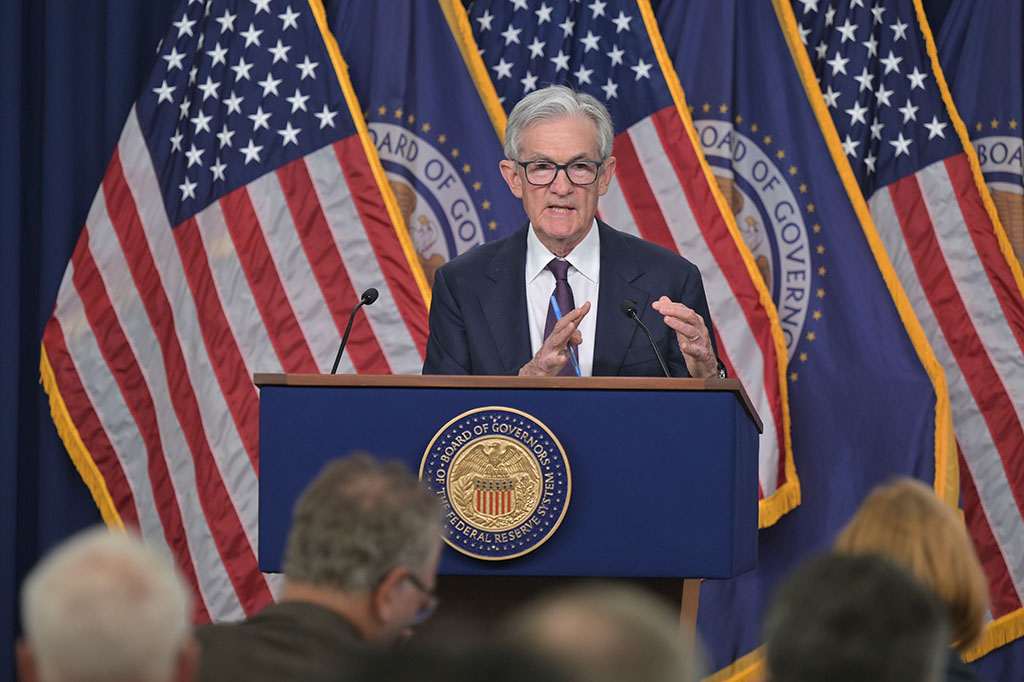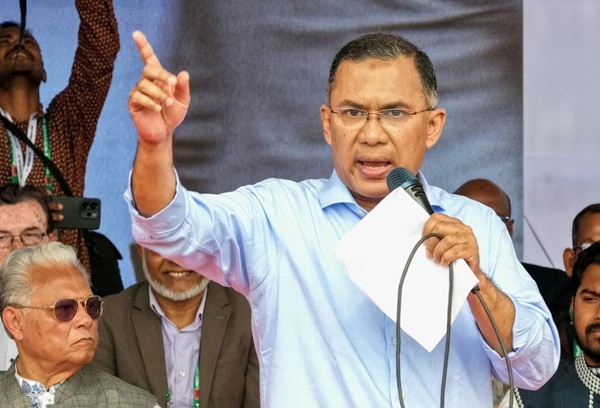.png)
Risk-Off Mood Grips Asia After Fed Signals Unclear Rate-Cut Trajectory
Here’s your quick read to start the day: a chatty, no-fuss look at overnight moves, the big story, what’s on the docket, and the tickers you need to watch.

September 24, 2025 at 2:04 AM IST
GLOBAL MOOD: Risk-off
Asia-Pacific markets turned risk-off, tracking Wall Street declines after Fed Chair Powell warned equity valuations look stretched and stressed policy uncertainty. Mixed Fed signals, slowing US business activity, and costly visa reforms kept investor sentiment cautious.
TODAY’S WATCHLIST
THE BIG STORY
Amid these monetary policy deliberations, the Trump administration’s new $100,000 H-1B visa fee and proposed reforms to the lottery-based system are prompting tech firms to consider moving jobs abroad. Under the plan, visas would be allocated based on wage tiers to favour higher-skilled positions, raising potential challenges for US recruitment and the technology sector’s access to global talent.
Data Spotlight
US business activity eased for a second consecutive month in September, as S&P Global’s flash Composite PMI slipped to 53.6 from 54.6 in August, signalling slower expansion across the private sector. Manufacturing activity cooled to 52.0 from 53.0, while services eased to 53.9 from 54.5. Firms highlighted rising costs from tariffs but largely absorbed them instead of passing them on to prices, suggesting limited near-term inflationary pressure.
Takeaway:
WHAT HAPPENED OVERNIGHT
- Nasdaq Leads Declines as Fed Chair Powell Signals Caution on Rate Cuts
- US stocks fell on Tuesday, ending a three-day streak of record closings.
- Nasdaq led losses, with Nvidia down 2.8% after announcing up to $100 billion investment in OpenAI.
- Amazon, Microsoft, and Apple also declined amid broader tech weakness.
- Fed Chair Powell emphasised balancing inflation concerns with a weakening labour market.
- US stocks fell on Tuesday, ending a three-day streak of record closings.
- US Treasury yields hold gains on robust data and Fed signals
- Yield on the 10-year US Treasury remained at 4.14%, sustaining gains from last week.
- Fed Chair Powell reiterated the rate cut marks the start of a cutting cycle while highlighting a weakening labour market.
- Market continues to assess rate outlook and future Treasury supply amid hawkish Fed signals.
- Yield on the 10-year US Treasury remained at 4.14%, sustaining gains from last week.
- US Dollar index steady on Federal Reserve outlook
- The US dollar index remained around 97.3, close to last week’s three-year low of 96.2.
- Fed Chair Jerome Powell cited a weaker labour market and slowing job growth as reasons for the recent rate cut.
- Tariff impacts on inflation remain lower than expected, giving the Fed room for less restrictive policy.
- The US dollar index remained around 97.3, close to last week’s three-year low of 96.2.
- Crude oil rise on stalled Iraq Kurdistan export deal
- Brent crude oil prices climbed over $1 a barrel after a deal to resume exports from Iraq's Kurdistan stalled.
- Brent crude rose 1.6% to $67.63 a barrel, US WTI crude gained 1.8% to $63.41 a barrel.
- Early losses were recouped as investor concerns about global oversupply eased.
- Brent crude oil prices climbed over $1 a barrel after a deal to resume exports from Iraq's Kurdistan stalled.
Day’s Ledger
Economic Data
- Japan Sep Manufacturing, Services and Composite PMI
- ECB Non-Monetary Policy Meeting
Corporate Actions
- Piccadily Agro to discuss fund raising
- SMC Global to consider bonus shares
- Star Housing to evaluate rights issue
Policy Events
- BoC Macklem Speech
- ECB Machado Speech
- BoE Greene Speech
Tickers to Watch
- HAPPIEST MINDS says H-1B visa fee hike to have negligible impact on operations
- Hcltech renews contract with Sweden-based commercial vehicle maker
- ICICI BANK receives ₹156.09 million GST demand notice from West Bengal government
- INFOSYS extends long-term IT services pact with Switzerland-based Sunrise
- LATENTVIEW says H-1B visa fee hike unlikely to materially affect operations
- LEMON TREE signs agreements for new hotels in Varanasi and Rewa
- MINDA CORP targets ₹175 billion revenue by FY30; plans ₹20 billion capex
- NEULAND LABS appoints Saharsh Rao as MD & CEO, Sucheth Rao as executive vice-chairman
- SWIGGY to shift quick-commerce business to indirect arm Swiggy Instamart
- SWIGGY to sell 163,990 preference shares in Rapido to MIH Invest for ₹19.68 billion
- TORRENT POWER acquires shares of Newzone India and Newzone Power for ₹2.11 billion
Must Read
- China, India key funders of Ukraine war through Russian oil purchase: Trump
- H-1B visa: Trump proposes new system to favour higher-skilled workers
- OECD lifts India's FY26 growth outlook to 6.7%; S&P retains at 6.5%
- Banks, NBFCs roll out festival season offers to revive credit demand
- Govt revises India's solar potential to 3,343 GW from 2014's 749 GW
- Jio BlackRock Mutual Fund targets consistency as it enters active arena
- Trump Blasts UN Over Immigration, Climate in Combative Speech
- Brazil’s Lula Kicks Off UN General Assembly With Jab at Trump
- Trump Rejects Meeting With Democrats as Shutdown Approaches
See you tomorrow with another edition of The Morning Edge.
Have a great trading day.
Saudi Arabia’s defence pact with Pakistan has unsettled Gulf security dynamics. Beneath the rhetoric lies insecurity, nuclear ambiguity, and shifting alliances. For India, the challenge is to deepen security trust, not just economic ties.
Lt Gen Syed Ata Hasnain (Retd) reviews what the pact means for Gulf security, Pakistan’s regional rebound, and India’s next moves.
https://basispointinsight.com/Story/Home/saudi-insecurity--pakistan-s-rebound--reviewing-persian-gulf-security_7778a3393fdd.html


